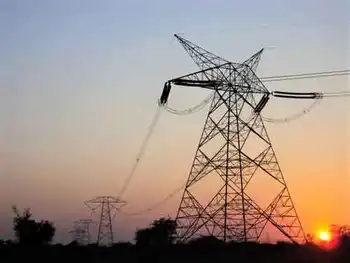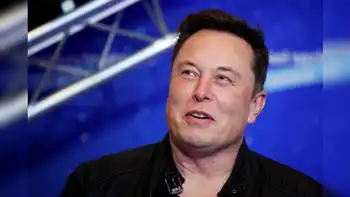Schwarzenegger to veto renewable energy bills
The Democratic bills that passed the state Legislature just before the end of the legislative session would have set up the most aggressive renewable energy standards in the nation.
But they also sought to limit the amount of energy from sources such as wind, solar and geothermal that could come from out-of-state. Schwarzenegger and some energy producers said the legislation would set up too many regulatory hurdles.
"The poorly drafted, overly complex bills passed by the Legislature are protectionist schemes that will kill the solar industry in California and drive prices up like the failed energy deregulation of the late 1990s," Schwarzenegger's communications director, Matt David, said in a statement.
The governor's office didn't immediately explain how Schwarzenegger would implement the goals of the legislation through the executive order. Supporters worry that it would not have the same strength of law as the bills would have.
The Independent Energy Producers, which represents companies that provide 80 percent of California's renewable energy, opposed the legislation, despite having sought a higher standard.
Jan Smutny-Jones, the association's executive director, said some of the language in the bills would have limited the placement of solar plants in some areas of the state, threatening projects that are already underway and others that are expecting to get funding through the federal stimulus package.
"The bill basically is sort of a dog's breakfast of bad ideas in terms of how it moves us forward," he said.
Consumer advocates and environmental groups sought the limits on out-of-state power because they wanted the bulk of California's renewable energy to be generated within the state. They said it would help promote job growth.
Environment California urged Schwarzenegger to reconsider.
"Creating a hard mandate with the force of law behind it for this 33 percent-by-2020 goal is critical to meeting California's global warming goals, much championed by Gov. Schwarzenegger, as well as bringing upward of 200,000 green jobs to the state," the group's legislative director, Dan Jacobson, said.
The legislation would have allowed utilities to import renewable energy generated outside California as long as the power came from a plant that connects to California's electricity grid.
Utilities also could buy a limited number of credits from out-of-state producers of alternative energy as a way to promote the development of clean power, even though that power would not reach California markets.
Republicans said the restrictions could drive up energy costs for Californians by as much as $10 billion a year; A backer of the legislation, Sen. Joe Simitian, D-Palo Alto, said concerns over cost increases were being exaggerated.
California already has one of the most aggressive standards of the 31 states that require utilities to generate a certain amount of their power from renewable sources, according to the Arlington, Va.-based Pew Center on Global Climate Change.
In Hawaii, utilities must generate 40 percent of their power from renewable sources by 2030 — a longer timeframe than the goal being debated in California.
California's investor-owned utilities also are legally required to generate at least 20 percent of their power from renewable sources by next year, but few are expected to meet that goal.
The California Public Utilities Commission also has said the state's utilities will need to build additional transmission lines and other infrastructure to move more renewable energy. Construction could cost $115 billion over 10 years.
Schwarzenegger sent legislators a detailed letter in May outlining his requirements for a renewable energy standard, including protection for utility ratepayers, removing barriers to building more transmission lines and creating a healthy energy market.
Related News

Europe Is Losing Nuclear Power Just When It Really Needs Energy
PARIS - As the Fukushima disaster unfolded in Japan in 2011, then-German Chancellor Angela Merkel made a dramatic decision that delighted her country’s anti-nuclear movement: all reactors would be ditched.
What couldn’t have been predicted was that Europe would find itself mired in one of the worst energy crises in its history. A decade later, the continent’s biggest economy has shut down almost all its capacity already. The rest will be switched off at the end of 2022 — at the worst possible time.
Wholesale power prices are more than four times what they were at the start of the coronavirus pandemic. Governments are having to take emergency action to support domestic and industrial consumers faced…





